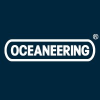- Buscador de trabajo
- Gulf of Mexico
- NDT Level II E/C Rope Access Technician

NDT Level II E / C Rope Access Technician
OceaneeringGulf of MexicoPosition Summary
Inspects offshore structures, vessels and pipelines, and their appurtenances, for conformance to specifications, using fixed or preset measuring instruments : Travels offshore on vessels and in aircraft. Examines materials or products for anomalies, damage, or defects, such as cracks, pits, incomplete welds, holes, dents, excessive corrosion, etc. Examines coating conditions.
The Level II EC Technician position will report to the Logistics Coordinator and will be responsible for testing the properties of technological systems, components, and materials without causing damage after training has been completed. The Level II Technicians are required to test and solve problems with various parts of a machine or piece of equipment while keeping it intact, and they often work with highly sensitive, very expensive scientific machinery.
Duties & Responsibilities
ESSENTIAL
- Set up and calibrate nondestructive testing equipment.
- Perform routine and preventive maintenance tasks (UT, RT, & VT), calibrations, and overall upkeep of equipment and facilities.
- Level II RT (Profile) inspection and limited weld quality inspection.
- Level II UT inspection.
- Assist with proper documentation and reports of services provided.
- Learn and abide by company policies and procedures.
- Transfer NDE results to proper documentation.
- Create appropriate drawings and sketches to supplement written data.
- May only operate radiographic equipment under the direct visual watch and supervision of a radiographer or radiographic instructor.
- Always maintain constant surveillance and immediate control of industrial radiographic equipment while it is in use.
- Secure industrial radiographic equipment from unauthorized removal always, when not tended under constant surveillance and immediate control.
- Prevent all unauthorized personnel from being within the restricted area boundaries while industrial radiographic equipment is in use.
- Provide the required notification to appropriate safety management personnel in the event of an incident, and to aid as needed.
- Capable of being certified as trustworthy and reliable per NRC criteria.
- Conduct tests to ensure quality or detect discontinuities (defects) using NDE methods of inspection.
- Instruct and supervise the Level I Technician.
- Perform other job-related tasks as assigned by Management.
- Interface daily with the Operations Manager and client representative about work priorities and progress of projects.
- Work closely with client to identify and remove obstacles.
- Actively participate in client safety initiatives, incident investigations, etc.
- Must be capable of working at heights on ropes.
- Working at least 180 days per year offshore, usually on a non-rotational basis, i.e., there is no set schedule and the duration of a given job is not fixed. Travel to offshore locations by vessel or aircraft.
- Must be able to pass Safe Gulf & HUET Water Survival training.
- Must possess or be able to obtain a TWIC card, valid Passport, Safe Gulf & HUET Water Survival.
- Must possess a valid driver’s license.
- Instruct and supervise the Level I Technician.
Qualifications
REQUIRED
Formal Training Experience (OJT)
Ultrasonic Thickness Level II 24 175
Radiographer Level II
Level I and II training Courses.
DESIRED
KNOWLEDGE, SKILLS, ABILITIES, AND OTHER CHARACTERISTICS